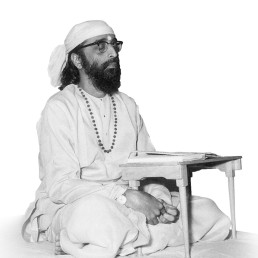
Jnana Yajna 88

Year & Dates:
June 15, 1961 to June 30, 1961

Yajna Topic:
Shrimad Bhagavad Gita- Chapter 12

Place:
Warangal, India
The scenic and ancient capital of the Kakatiya kingdom in Telangana, Warangal is known for its magnificent forts and artistic, architectural marvels like the Thousand Pillar Temple. After many attempts by two loyal devotees, Sri Narasimha Murthy, the secretary of the yajna committee, and Sri Janardhan Rao who was overseeing the construction of Sandeepany Sadhanalaya in Mumbai, the 88th Jnana Yajna of Pujya Gurudev was finally slated to be His first yajna in Warangal.
A disciple of Swami Jnanananda and a leading philanthropist, Maharaja Saheb Pusapati Vijayarama Gajapathi Raju (P.V.G. Raju) while inaugurating the long-awaited Jnana Yajna conveyed his gratitude for being selected again for the honor after he inaugurated Pujya Gurudev’s Mundakopanishad yajna in Hyderabad in 1960. He spoke about the differing journeys of seekers, the importance of diligent discipline, and the yogic paths of Jnana, Bhakti, and Karma.
Creating New Waves of Devotion
Since it was Pujya Gurudev’s first Jnana Yajna in Warangal, Pujya Gurudev highlighted the purpose of Jnana Yajnas during India’s times of spiritual inertia and moral distress. He stated clearly that “in order to achieve the renaissance of our culture, each individual must become an active center of cultural reintegration and this makes his own contribution.” From June 16-22, the discourses covered key introductory aspects of Vedanta and Srimad Bhagavad Gita, priming the audience to delve into the beauty of the chosen chapter of Bhakti Yoga in that 88th yajna. The topic for study in the mornings was Kenopanishad.
The Chinmaya Spell: Warangal was entranced by Pujya Gurudev’s powerful voice and spiritual vibrations, and the large number of seekers who clustered in the yajnashala understood the Chinmaya phenomenon for the first time. The incessant rains could not wet their enthusiasm, and the lack of space inside the auditorium did not deter them from finding options to hang on to every word that Pujya Gurudev uttered. They wished they could experience the bliss of the yatra with Pujya Gurudev; they were disappointed that the Ganga Prokshana ceremony also had to be cancelled. Nevertheless, Pujya Gurudev comforted their devoted hearts with His bountiful love which itself sanctified like the Gangajal.
Apart from His discourses and satsangs through the days, Pujya Gurudev invigorated the members of the Warangal Rotary Club and the students of the Engineering College and the Multipurpose School, Warangal.
For Reflection: Pujya Gurudev’s devotion to His audience awakens a sense of awe. Such was the Guru, deeply aware of the needs of a new audience, that He never resorted to shortcuts while teaching and did not dilute His precious foundational introductions.

“Think,” Says Pujya Gurudev
“To whom censure and praise are equal’:- Not that he is immune to insults, nor is it because he is unintelligent enough to understand them. To a great devotee, living as he is in a realm of his own, full of transcendental and blissful experiences of the Divine, to him the worldly censure or even praise has no significance, or importance at all. He realizes that one who has been praised today will be censured by the society tomorrow, and the last year’s censured man becomes the praiseworthy leader of today. Praise and censure thus, express in themselves nothing more than the passing fancy of those who are doing them!
“ He is silent”:- A true man of wisdom becomes a man of few words not only physically but even mentally. Silence within is real silence (Mauna). To keep physical silence and let loose the mind to talk in itself generally results in a serious type of repression which ultimately drives many to the porch of a mental hospital.
From Tyagi Magazine
What is superior than knowledge?
Continuous intellectual effort leads to dullness, requiring occasional shock therapy to awaken awareness. The teacher emphasizes transcending knowledge and practice for detachment from the fruits of action, leading to efficient study and productive practice. True understanding enables focused contemplation and harnessing the power of meditation, essential for progress beyond anxiety and into effective action.